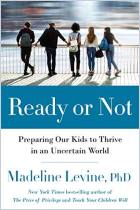Únase a getAbstract para acceder al resumen.

Únase a getAbstract para acceder al resumen.
Anthony Biglan
The Nurture Effect
How the Science of Human Behavior Can Improve Our Lives & Our World
New Harbinger, 2015
¿De qué se trata?
Modern behavioral sciences can improve society by fostering the more “nurturing” world that people fundamentally need.
Recommendation
Social scientist Anthony Biglan offers a focused synthesis of 40 years of research to explain why and how people can improve themselves, their families and society by becoming more “nurturing.” He argues that evolution shows humans to be uniquely social and collaborative, and that contemporary inquiries into behavior suggest that people need their world to be more nurturing. Biglan occasionally indulges in jargon, and he reflects an idealism that may regard people and policy makers as unrealistically kind and rational. While always politically neutral, getAbstract recommends his professional advocacy of a nicer, gentler society to HR managers, business owners, teachers, parents, policy makers and anyone interested in how people function and why caring relationships are the foundation of social change.
Summary
About the Author
Anthony Biglan, PhD, is a senior scientist at the Oregon Research Institute and an authority in using prevention science to support nurturing families, schools and communities.


















Comment on this summary